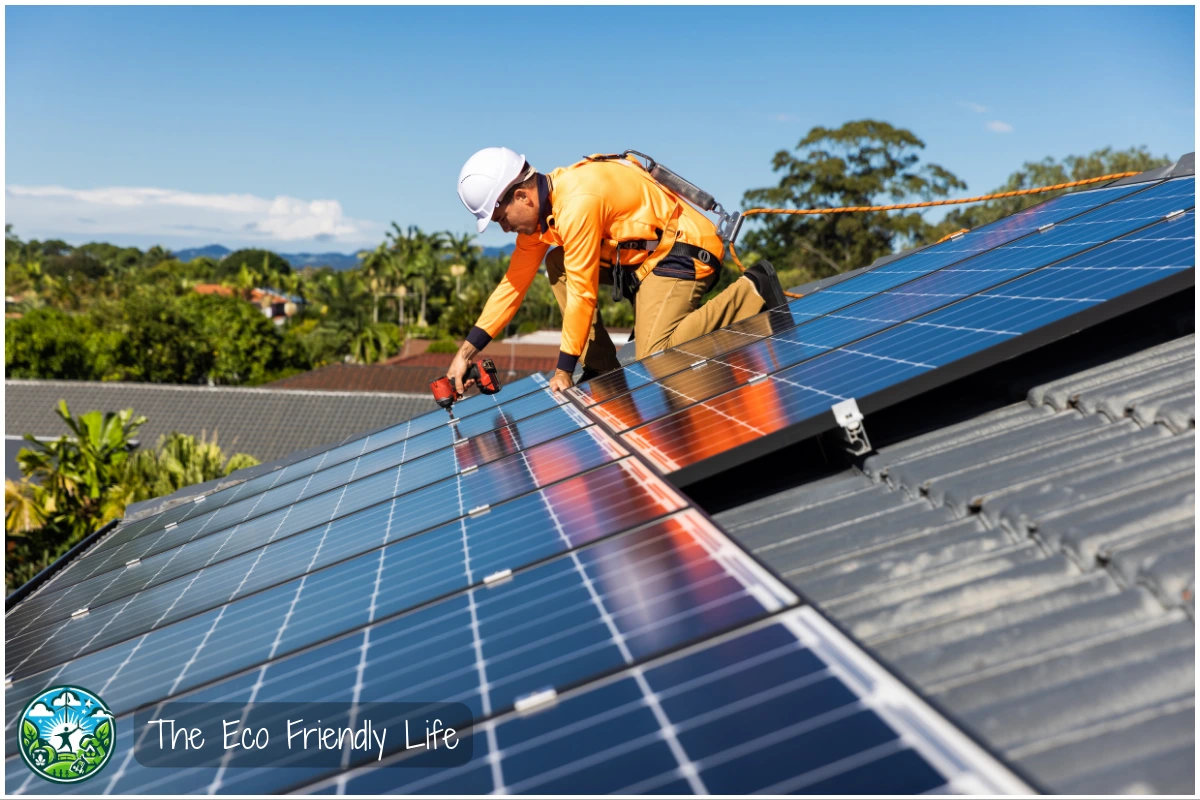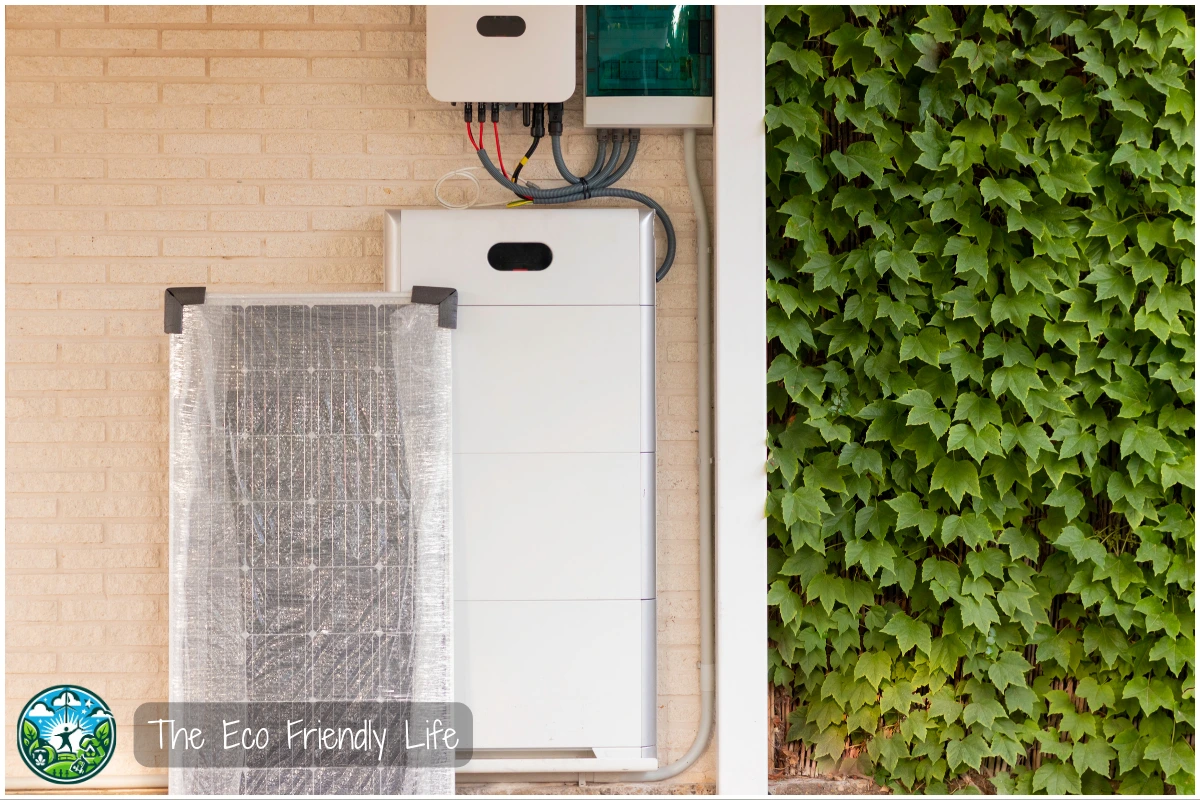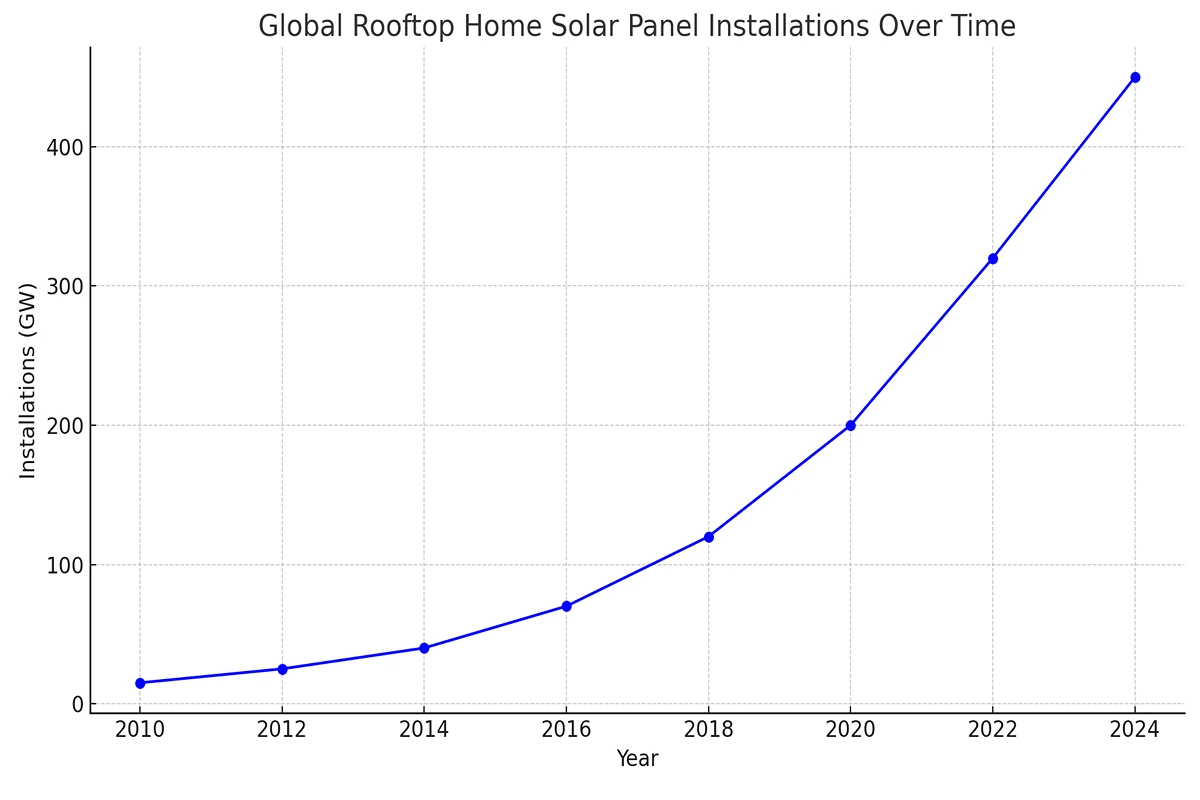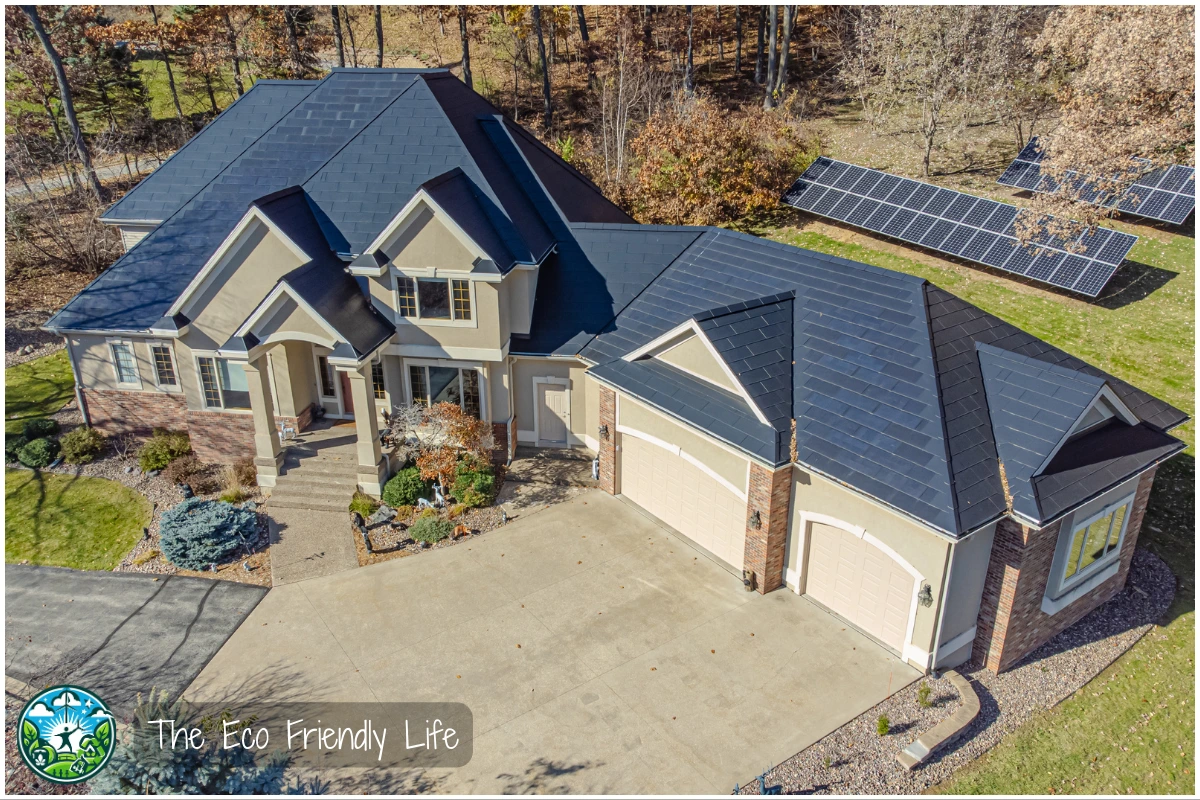Hi, it’s Katrina with you, and welcome back to The Eco-Friendly Life. Today, we’re going to dive into the benefits of solar power for residential use, a topic that shines brightly in the world of renewable energy. With initiatives like the $7 Billion Solar for All Program by the EPA, it’s clear that solar energy is making waves, especially in low-income communities.
In this article, we’ll explore the significant cost savings, increased home value, and the environmental benefits of solar power. From financial gains to reducing carbon footprints, solar energy is proving to be a wise and sustainable choice for homeowners. So, let’s uncover how harnessing the sun can transform your home and contribute to a greener planet.

Harnessing the Sun: The Bright Future of Residential Solar Power
Let’s dive into solar power, a topic that always lights up my conversations. Recently, significant news highlights the importance of solar energy for residential use. The $7 Billion Solar for All Program, led by the US Environmental Protection Agency (EPA), aims to positively impact low-income communities and highlights the importance of diverse sources of renewable energy.
Economic Boost: This initiative isn’t just about installing panels on rooftops; it’s projected to save these communities an impressive $350 million annually. Plus, it’s expected to create about 200,000 jobs. Such initiatives remind us that transitioning to solar is more than an environmental statement; it’s a step towards economic vitality.
Combat Climate Change: Climate change is a reality affecting our lives in many ways. Reports from sources like ScienceDaily suggest a boost in the value of residential solar power due to climate change. Not only does it enhance cost savings, but it also significantly reduces emissions.
Smart Homeowner Moves: As a homeowner, I know the importance of making decisions based on concrete benefits. With the tangible and long-term advantages highlighted by the latest reports and studies, it’s clear that solar power is not just a passing trend — it’s a viable solution for our energy needs today and in the future.
Let’s now explore how solar energy impacts the financial aspects of homeownership, from property value to monthly savings, giving you a fuller picture of its economic benefits.
Financial Sunshine: How Solar Energy Enhances Your Home’s Value
Solar’s Value Proposition: Let’s delve into the economic benefits of solar power. As homeowners, we have much to gain. Adopting solar technology not only lowers monthly energy bills but also increases the resale value of your home. A study from Lawrence Berkeley National Laboratory found that homes with solar panels sold for a premium, reflecting future energy cost savings for the new owner.
Energy Independence: This premium places a concrete value on energy independence. By installing a solar power system, homeowners essentially lock in lower energy costs for years to come. This is an attractive prospect in today’s rising energy market, promising potential buyers a hedge against increasing utility prices.

Health Benefits: Furthermore, a comprehensive report from MIT highlights the broader economic value added by solar power adoption, quantifying its public health benefits. The reduction in air pollution from a typical residential solar installation improves overall health outcomes in the community, leading to savings in healthcare costs for society at large.
Financial and Environmental Gains: As solar power reduces reliance on fossil fuels, it consequently decreases harmful emissions. Homeowners play a pivotal role in this change while benefiting economically. Residential solar doesn’t just make environmental sense; it makes financial sense too.
The Cost-Benefit Equation: Analyzing Solar Energy’s Economic Viability
Weighing Costs and Benefits: When examining the financial feasibility of solar power for residential use, it’s essential to consider both sides of the equation. The advantages are clear, with benefits such as reduced electric bills, energy independence, and long-term savings. However, homeowners must also weigh the high upfront costs required to get started.
Long-Term Investment: An investment in solar is not just about the installations or hardware; it’s investing in a cost-effective, healthier future. While the financial outlay at the beginning can be daunting, the technology’s longevity and minimal maintenance make solar panels a financially prudent choice in the long run.
Solar Popularity: Let’s consider the current market data. Recent statistics from The Roundup indicate a steady increase in residential solar installations, with approximately 3.2 million homes in the U.S. now harnessing solar energy. Moreover, with an annual growth rate of 30%, these numbers are set to soar, reflecting homeowners’ growing preference for solar and its financial viability.
The following graph displays a summary of past data and future projections from the IEA, BP Statistical Review, and SEIA, with global rooftop home solar panel installations expected to reach 450 gigawatts (GW) by the end of 2024 having grown from 15 GW in 2010.

Costs and Returns: Most residential solar systems cost between $10,290 and $20,580, influenced by size, location, and the equipment used. Despite the initial cost, most systems pay for themselves within 8-12 years. This return on investment can be even faster in states with higher electricity costs and advantageous solar incentives like tax rebates and net metering.
Future-Proof Energy: Remember, solar energy isn’t just competing with current energy costs; it’s offering protection against rising electricity prices in the future. As utility rates climb, solar users can rest easy knowing their energy costs are locked in, providing a significant hedge against these increases.
Beyond Economics: Moving forward, it’s beneficial to expand our perspective beyond economics to include the broader impacts of residential solar energy, particularly in relation to sustainability and environmental responsibility.
The Environmental Impact: Solar Power’s Role in Sustainable Living
Green Living: When discussing solar power, it’s impossible to ignore the broader picture of sustainability. Making the switch to solar isn’t just about cutting power bills; it’s a step towards a cleaner, more sustainable future. With climate change becoming a pressing global issue, solar power offers households a way to significantly reduce their carbon footprint.
Low Emissions: The numbers are eye-opening. Compared to traditional fossil fuels, solar panels produce a mere 6 grams of CO2 equivalent per kilowatt-hour. That’s a fraction of the emissions linked to coal and gas. The shift to residential solar isn’t only about individual savings; it represents a collective movement towards decreasing our environmental impact.
Lifecycle Considerations: Concerns do arise when considering the entire lifecycle of solar panels. Yes, they can have an environmental impact during manufacturing and disposal. However, most solar panels offset the emissions from their production within just four years of operation. After that, they continue to produce clean energy for 25 years or more, with the potential for recycling at the end of their lifespan.
Future Projections: Looking ahead, solar panels are not just pieces of technology; they’re investments in our planet’s health. Projections show that alongside battery storage, these green solutions are expected to make up 81% of new U.S. electric-generating capacity by the end of 2024. This bodes well for both the environment and homeowners considering solar power as a viable, responsible energy choice.
Illuminating Decisions: Should You Go Solar at Home?
Make the Switch: Deciding to install solar panels is a significant home improvement step, requiring an honest look at your individual situation. If you’re wondering whether solar energy is the right move for you, your decision should be influenced by various factors, including geographic location, local climate, roof orientation, and personal financial circumstances.
Location Matters: If you live in an area with high levels of sunshine year-round, such as California or Florida, the investment in solar panels can pay off more rapidly. However, solar energy isn’t exclusive to the Sun Belt; numerous northern states offer incentives that can make solar power equally attractive.
Financial Considerations: Financial considerations are crucial. Explore what types of solar loans, tax rebates, and net metering policies are available in your region. While the initial overhead can seem daunting, these incentives often significantly lower the barrier to entry. Moreover, the long-term savings on electricity costs can make the investment worthwhile – with many systems paying for themselves in less than a decade.

Sustainable Choice: Beyond dollars and cents, opting for solar power is a commitment to a sustainable future. As a homeowner, you directly contribute to decreasing fossil fuel reliance and combating climate change. Keep in mind the high growth projections for residential solar installations and the industry’s trajectory toward more efficient, cost-effective solutions.
Smart Investment: Ultimately, choosing to go solar is increasingly becoming not just an environmentally conscientious decision but also a savvy economic one. Examine your current energy costs, potential savings, and commitment to environmental stewardship. With advancing technology, rising conventional energy prices, and growing community and government support, the case for residential solar power is shining stronger than ever.
Conclusion
In wrapping up our exploration of the benefits of solar power for residential use, it’s evident that harnessing solar energy offers substantial financial and environmental advantages. From lowering energy bills and increasing home value to significantly reducing carbon footprints, the rewards of solar power are multifaceted and far-reaching.
As discussed, initiatives like the $7 Billion Solar for All Program underscore the transformative potential of solar energy, especially in low-income communities. These efforts not only promise economic uplift but also contribute to a healthier planet. By choosing solar, you’re not just making a smart financial decision; you’re actively participating in the fight against climate change.
Thank you for joining me on this enlightening journey. I encourage you to evaluate your home’s solar potential and consider making the switch to solar energy. Until next time, stay committed to green choices and help our planet.



This article is incredibly informative! The benefits of solar power for residential use are compelling, and your explanation makes it easy to understand why more people should consider making the switch. Have you noticed a significant reduction in energy costs since installing solar panels?
Additionally, the section on environmental impact was eye-opening. It’s great to see how much of a difference solar power can make. Do you have any tips for those just starting the process of transitioning to solar energy?
Hi Samuel,
Thank you for your kind words! I’m glad you found the article informative. Since installing solar panels, we’ve noticed a significant reduction in our energy costs. It’s amazing how much you can save on electricity bills once you start harnessing the power of the sun. The upfront investment is definitely worth it in the long run, as the panels pay for themselves within a few years and continue to provide savings.
For those just starting the process of transitioning to solar energy, I recommend researching available incentives like tax rebates and net metering policies in your area. It’s also helpful to get multiple quotes from different solar providers to ensure you’re getting the best deal. Lastly, consider your home’s location and roof orientation to maximize sunlight exposure and energy production. Good luck with your solar journey!